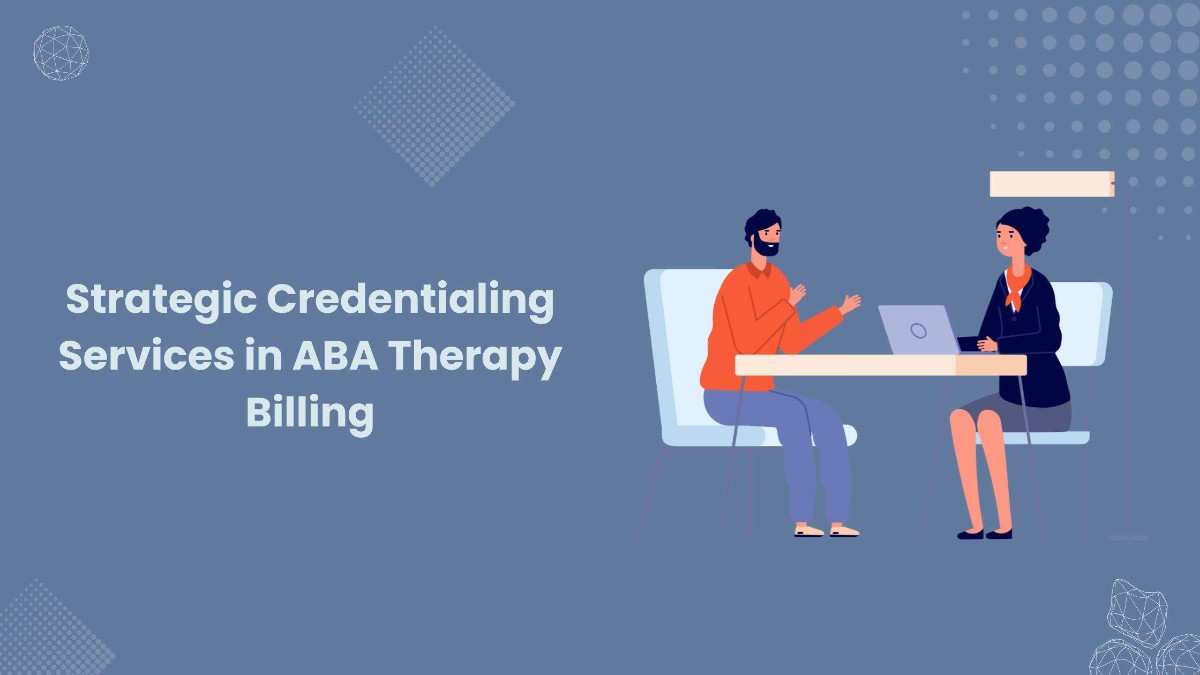


Credentialing services verify ABA providers, cut denials, speed claims, and boost finances.
Effective credentialing services serve as a cornerstone for operational success and financial stability in ABA therapy billing. With ever-evolving regulatory standards and a competitive reimbursement landscape, ensuring that your providers are properly credentialed is not merely an administrative task—it’s a strategic imperative that directly impacts revenue cycles, claim approvals, and overall practice efficiency.
Credentialing services validate the qualifications, licenses, and certifications of ABA therapy providers. This comprehensive verification is essential to ensure compliance with industry guidelines and insurance regulations. Noncompliance can lead to claim denials, rejections, and delays that negatively affect cash flow. Studies have shown that practices with thorough credentialing processes can reduce claim denial rates by up to 20-30%, emphasizing the financial impact of maintaining accurate provider credentials.
When payers have confidence in the legitimacy of credentials, they are more likely to expedite claims. The benefits are clear: reduced administrative overhead, faster reimbursements, and improved financial predictability for practices. By preventing errors at the source, credentialing services not only safeguard your practice from costly claim denials but also help in preserving your good standing with insurers and regulatory bodies.
For optimal outcomes in ABA therapy billing, credentialing services should be seamlessly integrated with your billing operations. Here are several strategies that can streamline this integration and enhance overall efficiency:
Maintaining a centralized, digital repository for all provider credentials is crucial. A unified database consolidates licensing, certifications, and renewals, making it easier to monitor compliance and promptly update records. Automated tools can cross-reference this data with the latest regulatory requirements, preventing oversights that could lead to delays or claim denials.
Implementing automated alerts for expiring credentials ensures timely renewals and minimizes lapses in compliance. Complement this system with regular audits of your credentialing records to identify discrepancies or outdated information before they affect the billing process. Continuous monitoring is a proactive strategy that reduces the chance of errors slipping through unnoticed.
Modern billing platforms can be integrated with credentialing systems to ensure that all claims submitted are backed by up-to-date documentation. These integrations not only automate the submission process but also provide real-time validation of provider credentials. For instance, practices that integrated these technologies reported a decrease in resubmission rates by nearly 25%, which directly correlates with improved billing efficiency.
Effective communication between in-house staff and outsourced billing partners is another critical component. When teams share real-time access to credentialing and billing information, errors are reduced, and any issues can be addressed rapidly. Practices that leverage the specialized expertise of providers like aba billing services have experienced smoother transitions and more consistent revenue streams.
While the benefits are evident, practices often encounter obstacles when implementing credentialing services. Data inconsistencies, resource limitations, and keeping pace with regulatory changes are among the most common challenges. Standardizing data collection processes and using uniform credentialing templates can significantly improve accuracy. Furthermore, outsourcing credentialing tasks can free up valuable resources, allowing in-house teams to concentrate on patient care and other core functions.
Given the dynamic nature of healthcare regulations, staying abreast of changes is non-negotiable. This might involve subscribing to industry newsletters, participating in professional forums, or investing in systems that automatically adjust credentialing criteria in response to regulatory updates.
Looking ahead, advancements in artificial intelligence (AI) and data analytics promise to revolutionize credentialing services. AI can swiftly analyze large sets of credentialing data, flag potential issues, and even predict renewals before they become critical. Data analytics, on the other hand, can provide actionable insights into patterns of claim denials, helping to pinpoint training needs within the billing team and optimize the overall process.
Cloud-based credentialing systems with enhanced security measures are also becoming increasingly popular. These systems offer real-time updates and remote accessibility, ensuring that credentialing data is always current regardless of location. Such innovations ensure that ABA therapy billing remains efficient and adaptable in a rapidly changing healthcare environment.
Credentialing services are critical to the financial and operational success of ABA therapy billing. By ensuring that providers meet all regulatory standards, these services minimize claim denials, expedite reimbursements, and strengthen the overall compliance framework within your practice. Adopting strategic approaches such as centralized databases, automated alerts, and robust integration with billing systems can significantly enhance your revenue cycle management.
